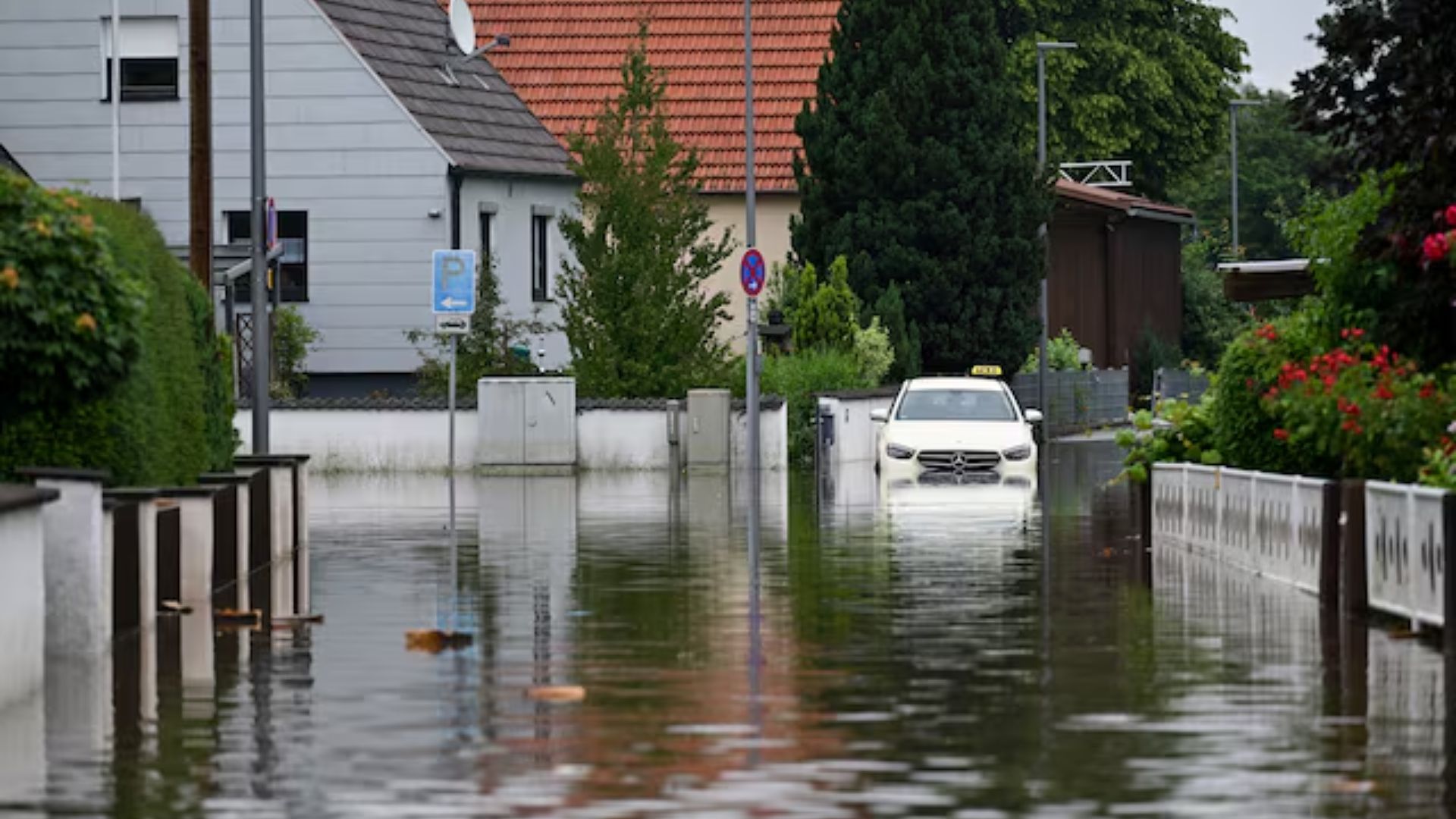FRANKFURT, (Reuters) – The German government said on Monday said deadly flooding in the nation’s south served as a warning to keep up the fight against climate change, hours after an official advisory council said the state had fallen behind its greenhouse gas targets.
Over the weekend, a firefighter died while trying to rescue trapped residents and several thousand people were forced to leave their homes due to heavy rains. The body of a missing woman was found in a flooded basement on Monday, German media reported.
Chancellor Olaf Scholz said during a visit to affected areas on Monday that federal emergency services and the military were being deployed.
“We must not neglect the task of halting man-made climate change. This is another reminder that must be taken away from this disaster,” he said.
Economy and climate minister Robert Habeck, during a visit of affected regions on Sunday, also noted that climate change was causing severe weather events.
However, a panel of government climate advisors said on Monday that Germany is likely to miss its own 2030 greenhouse gas targets, contradicting Habeck’s projections in March and calling for new measures.
Germany’s Climate Protection Act will require the government to take corrective measures for the 2030 target if the expert panel confirms its findings next year.
Amid first signs of the flooding’s economic impact, Audi cancelled some production shifts on Monday at its main Ingolstadt plant as some staff could not come into work, though the factory itself was not affected.
The early and the late shifts assembling the A3 and Q2 vehicle models were cancelled, the Volkswagen-owned luxury carmaker said in an alert to staff on Sunday, which was made available to Reuters on Monday.
Germany’s farmers association flagged massive damage to fields and buildings in the sector, saying it was too early for a more precise estimate.
Navigation authorities earlier on Monday warned that parts of the river Rhine in southern Germany, an important route for commodities and fuels, were closed to cargo shipping for lack of overhead space to sail under bridges.
Rail company Deutsche Bahn (DBN.UL) late on Sunday advised against travelling in southern Germany.
Reporting by Christina Amann, Friederike Heine, Rene Wagner and Ilona Wissenbach; Writing by Ludwig Burger; editing by Matthias Williams, Rashmi Aich and Louise Heavens









